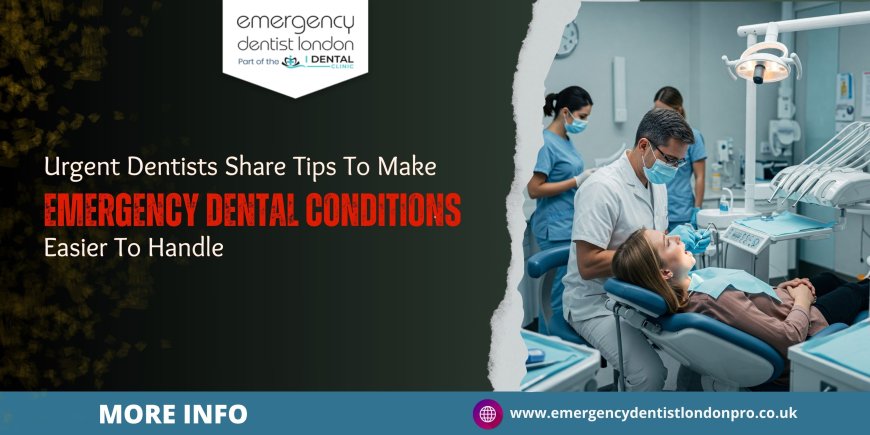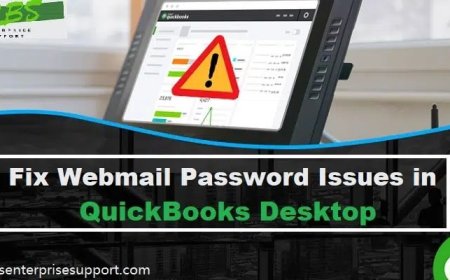Urgent dentists share crucial tips to make emergency dental conditions easier to handle
A dental emergency may arise any time and without any prior notice. It is helpful to be prepared for it so that you can take the right actions immediately..

A dental emergency may arise any time and without any prior notice. It is helpful to be prepared for it so that you can take the right actions immediately. In the following sections of this post let us explore few practical tips on handling dental emergencies. A dental emergency may arrive in different forms or symptoms including a sudden swelling in the mouth, unbearable pain in the tooth and severe bleeding from the mouth, etc. In a situation where you think you are in a dental emergency, it is always better contacting the office of a dentist nearby. As far as the United Kingdom is concerned, most private dental practices readily accommodate immediate appointments to non registered patients in event of a dental emergency. In addition to that most private dental practices provide “out of hours” emergency service to provide the right guidance. Moreover there is the NHS helpline 111 which remains open round the clock 24/7.
Thus getting emergency dental care and treatment is not very difficult in the UK even during out of hours, assure professionals who provide urgent dental care in London over the years. Now let us explore few common dental emergency conditions and discuss tips that you should follow in such situations.
Severe bleeding in dental emergencies and at-home care tips
Any substantial bleeding from the oral cavity warrants prompt evaluation and care. Various causes may be responsible for bleeding like an injury, extraction of a tooth, an infection and others. The most important thing to do is control the bleeding for which you have to apply direct pressure on the bleeding site using a piece of sterilised gauze. Once the bleeding comes under control, contact a dentist and ask for an emergency appointment.
Experiencing unbearable pain in the tooth
Severe pain in the tooth is often a sign of a dental emergency. Book an emergency dental appointment with your dentist and meanwhile try managing the pain with pain medications that are available over the counter at chemist stores like ibuprofen and paracetamol. While taking over the counter pain medicines you should always follow the instructions on dosage printed on the labels. Applying cold compress to the site of pain from outside also helps alleviating the pain. Apply cold compress for about 15 to 20 minutes from the cheek, chin or the lips and then take a break for about 10 to 15 minutes followed by another round of cold compress for another 20 minutes. Applying cold compress in this sequence proves more effective in alleviating pain and discomfort, explain emergency dentists in London. Never ever apply ice directly to the site of pain in the mouth.
Massive swelling that pops up suddenly
A sudden swelling may come up in the mouth without any prior notice. Some underlying reason behind this symptom or the other must be there and in this circumstance you should see your dentist urgently. Meanwhile try minimising the swelling and the accompanying pain if there is any with repeated application of cold compress. Along with cold compress it is also important rinsing the mouth thoroughly several times a day with lukewarm saltwater solution. If the pain becomes intense, you may take over-the-counter (OTC) pain medication for relief.
Handling the situation of completely knocked out teeth
A tooth or two may knock out of its socket in the gum under the impact of a severe blow or accident. Such situations need to be handled carefully. In fact you have to work swiftly tackling this dental emergency condition. First locate the dislodged tooth and always remember to handle it by its tip o crown and by its base. This is important to ensure the roots of the tooth do not get damaged in the process of your handling or manhandling. Once the roots are damaged the tooth cannot be retained in your mouth and you suffer from tooth loss, explain urgent dentists in London. Try to reinsert the tooth into the socket, taking care not to apply any pressure. If it does not go in smoothly then drop it in a cup of cold milk or water and carry the cup to your emergency dental appointment. This will keep the roots alive much longer, making it easier for your emergency dentist to reinstate it in your mouth.
Things to expect in emergency dental visits
When you suffer from any emergency dental condition and visit a dentist on an urgent appointment you should know what to expect during the visit. Here is a brief synopsis of such appointments.
- Usually when you book an emergency dentist in the UK, you are given same-day appointment. This is to ensure patients get prompt care and treatment when they need it badly. Most private surgeries accept both registered and unregistered patients when emergency dental conditions are concerned.
- During an emergency dental appointment, top priority of dental professionals is to subdue your pain and discomfort while making an accurate diagnosis of your underlying condition.
- Necessary treatment is provided based on the condition a patient is suffering from. In many cases only a temporary solution is provided until a follow up appointment is arranged.
- Dentists working at the widely trusted private practice Emergency Dentists London Pro explain emergency dental patients are scheduled with a follow up appointment only if an further treatment is required. Usually follow up appointments for this range of patients are reserved to ensure they posses sound oral health.




































































